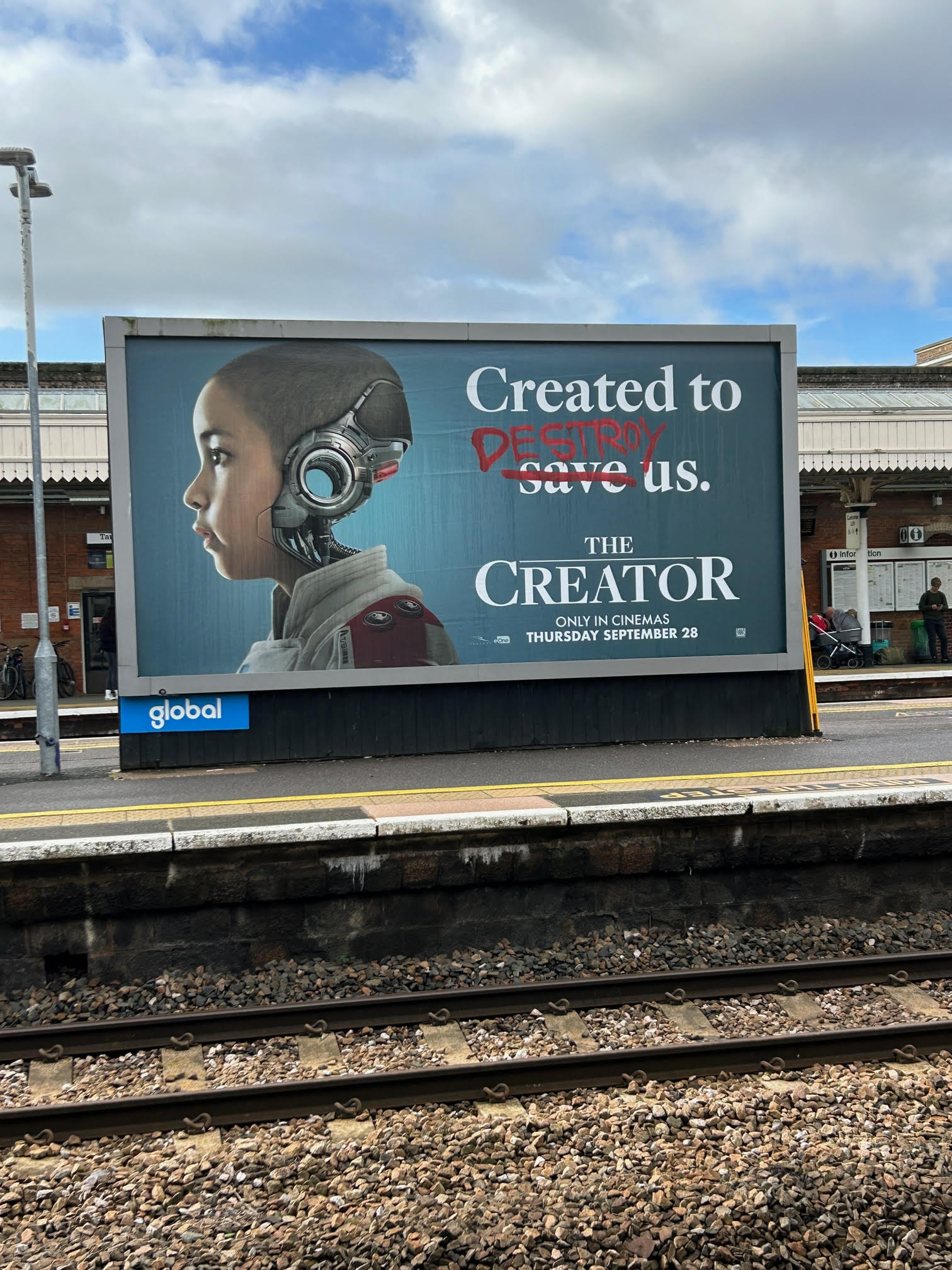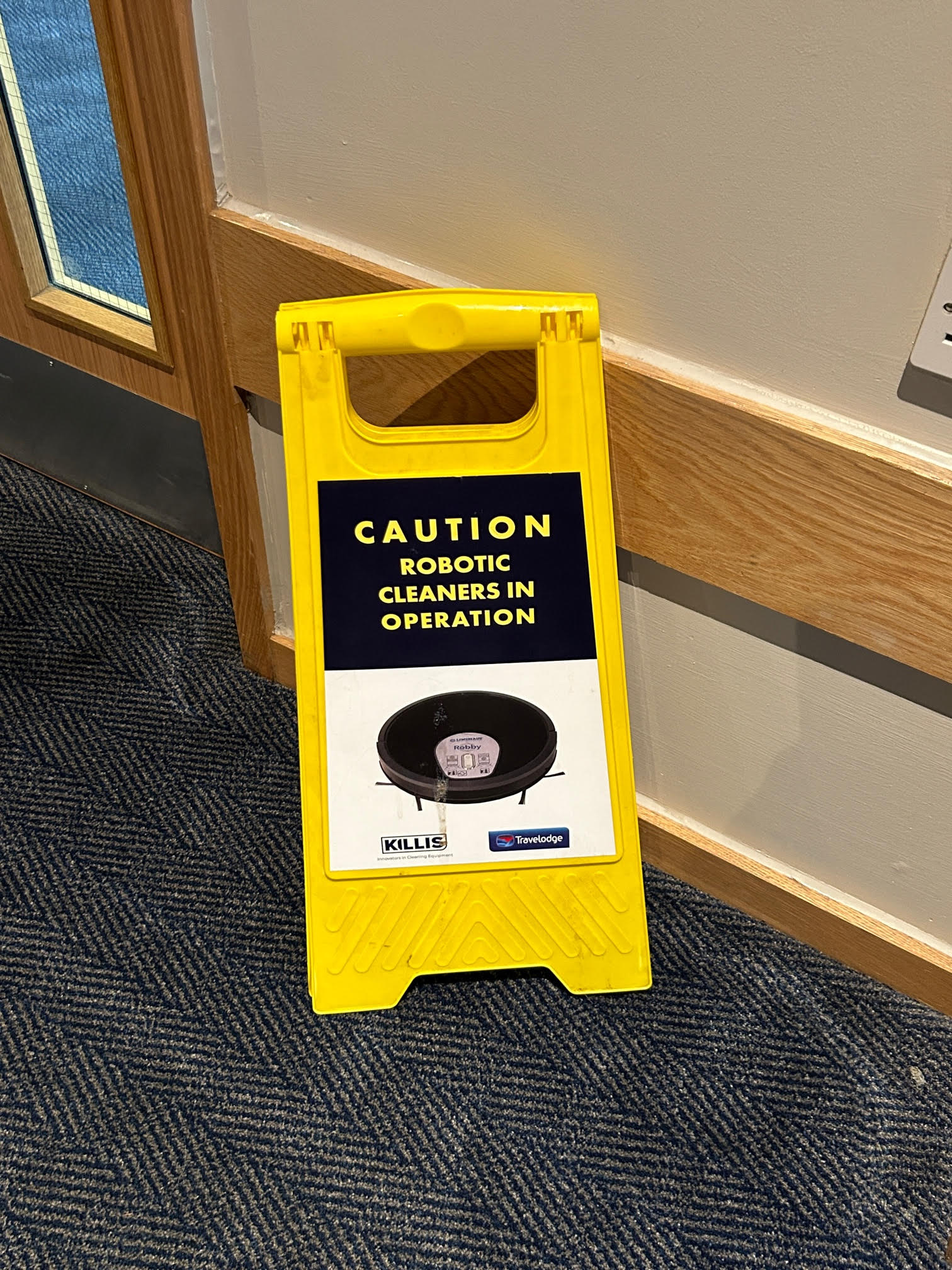What I’ve been doing
I had a good run of writing up weekly week notes, and now a month has slipped by so I’m making the effort to get these done.
The past few weeks have been a whirlwind of supporting the logistics for our People’s Panel on AI. There’s so much to reflect on that alone that I will do separately (hopefully next week).
Of course this has meant (the Panel and the UK’s AI Safety Summit taking place this week) that there is a lot of talk (internally and externally) about AI. My work in CONNECTED BY DATA, and some freelance work I’m doing to promote inclusivity, both have a strong centre around narratives - storytelling. Who is doing the telling? Why? What are the words used? And how is the story being passed on? AI is a really clear current narrative in our public media and more generally in popular culture.

Waiting at a train station recently I was confronted with this film poster - literally a story about AI being created for apparently good but actually to destroy us. When this is the predominant backdrop - reinforced by the UK Government’s Summit focussing entirely on existential “frontier” risk of AI (is it / isn’t it going to kill us all) - how can we hope to engage people in conversations about the real life impacts it is having in our world now (you can read about some of those in a piece of work our Adam is doing with the TUC).
On a lighter note…I also saw this in a hotel I stayed in recently. I couldn’t decide if it was warning me simply so I didn’t trip over it or because it was out to get me! And either way I imagine if I hadn’t come across a robot cleaner before this may have unnerved me somewhat.

What I need to take care of
There’s a lot of wrap up actions around the People’s Panel both in terms of finances (including balancing budgets) and reflecting / sharing lessons learned (individually and collectively).
Then AI continues to dominate and focus switches to supporting the delivery of our next Design Lab - this one a three day residential in Stroud - where attendees will be exploring and co-creating Resources for Effective & Inclusive Public Deliberation on Data & AI Governance.
What I’ve been inspired or challenged or moved by
It was a few weeks ago now that I first saw this video but I’m still loving it. I wouldn’t read Apple’s sustainability report. I would possibly glance at a news outlets headline surfacing one key fact. But I watched this from start to finish, undistracted, and in addition to applauding their delivery of this message (and hurrah for Octavia Spencer!) - actually feel hopeful that they’re having an impact in the fight against our climate crisis.
What I’ve been reading
I attended our recent Connected Conversation on ‘collective data rights’ (write up available here) which reminded me of these articles I’d read about collective redress: Martin Tisne writing about when harm is collective, so must rights be; and IFoW writing about regulation of algorithmic management. This concept of collective - and how a group that may not know they are a group, or that they’ve been impact by “invisible” algorithms, can find each other, come together and then “take on” a (probably strong institution / tech company) seems a real power imbalance to me. From my lay person, public culturist, perspective I’m reminded of the film Erin Brokovich and how hard her fight was - and that was when the evidence was clearly identifiable, in a defined area, and visibly traceable. If that was data - or AI - caused, I wonder what needs to happen to make that redress easier (which in turn will change future policy and governance).
